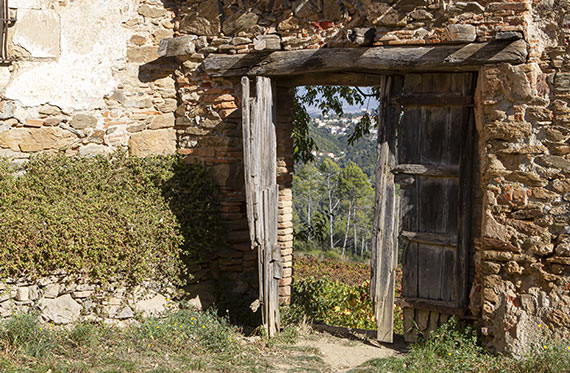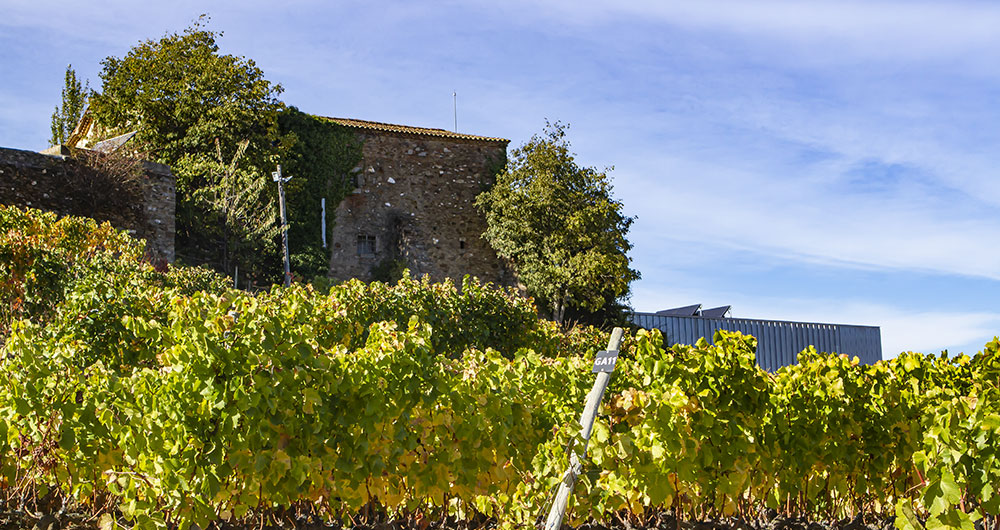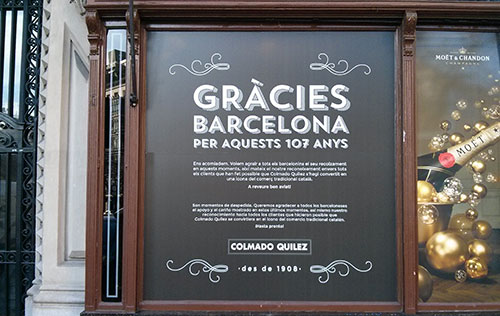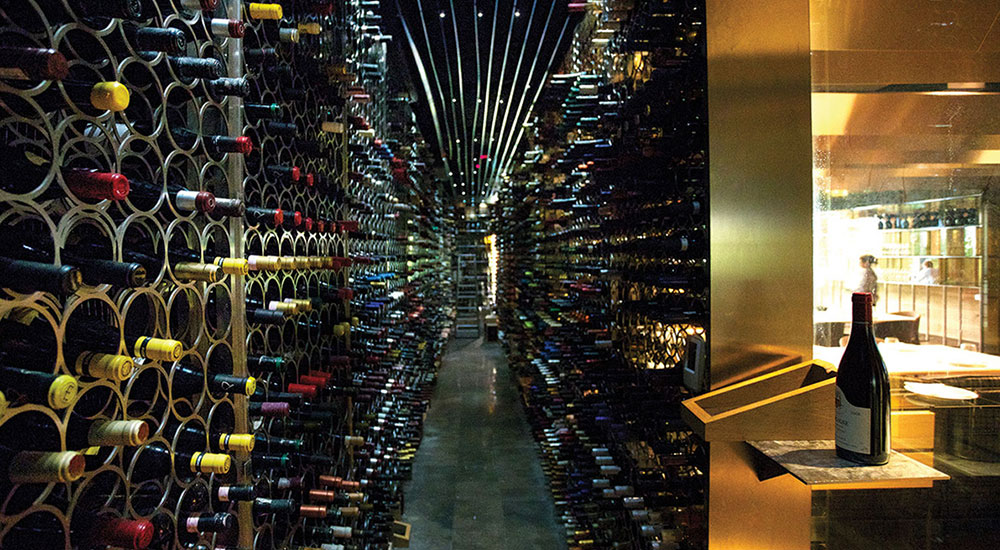Normally the thought of visiting a winery in Catalunya means preparing oneself for a one to two hour trip in the car to somewhere such as Empordà, Priorat, or Penedès. These are all wonderful trips on their own with a great deal to offer in terms of wine, food and seeing a different, possibly more authentic side of Catalunya than the hustle and bustle of Barcelona.
What few people know is that there is a fully functioning winery within the city limits of Barcelona called Can Calopa. This is a 16th century masia on Carretera de Vallvidrera, best reached from either Molins del Rei or Sarrià-Sant Gervasi, the district to which the winery belongs.) Out there, the city drifts away and you’re surrounded by the natural park of Serra de Collserola.
It’s a calming view of the grand Tibidabo church up on the hill in one direction and the jagged peaks of Montserrat in the other. From these mountains stretch the sprawl of small towns whose inhabitants contribute to the ephemeral daily population of Barcelona. The far off rumble of the C-16 to the center of Barcelona and the occasional passing of a Rodalies train are the only steady reminders that just minutes away lies the capital of Catalunya.
Don’t feel as if you’ve been missing out on the world’s most hidden urban winery, though, as absolutely none of the wines from Can Calopa are for sale. While you might find them at a speech by the mayor or other major city events, you won’t be finding them anywhere else—-the vineyard’s output is exclusively used for council social gatherings. This makes them both one of the most elusive and yet most publicly accessible wines in Barcelona.
 So, how on earth did such an entity come to be? It all started back in 2000 when the then mayor of Barcelona, Joan Clos of CiU (a political party now defunct), saw a similar city wine project in Paris. Upon deciding to replicate it, the city of Barcelona planted about four hectares of vineyards that include Sangiovese, Agiorgitiko, Aglianico, Syrah, and Grenache grape varieties. This selection of decidedly Southern European grapes came about due to the project being part of a greater pan-Mediterranean venture and thus the grapes from Italy, Greece, France, and Catalunya all mingle happily around this old masia.
So, how on earth did such an entity come to be? It all started back in 2000 when the then mayor of Barcelona, Joan Clos of CiU (a political party now defunct), saw a similar city wine project in Paris. Upon deciding to replicate it, the city of Barcelona planted about four hectares of vineyards that include Sangiovese, Agiorgitiko, Aglianico, Syrah, and Grenache grape varieties. This selection of decidedly Southern European grapes came about due to the project being part of a greater pan-Mediterranean venture and thus the grapes from Italy, Greece, France, and Catalunya all mingle happily around this old masia.
That was just the first part of the story because once vines are planted, someone needs to care for them. Initially this was done by the park authority, but it was decided to eventually shift the care of the vines and making of the wines to an independent entity. This is where a partnership with the Olivera Cooperative came in.
For those unfamiliar with the organization, this is a wine and olive oil producer in the gorgeous little village of Vallbona de les Monges in the Lleida province, which is most definitely worth a visit and taste on its own, especially for their white wines. While being a great winery in the DO Costers del Segre region, what makes them unique is the social component of their enterprise in that they employ people with mental disabilities to work in the cellar and with the olives. At Can Calopa, all these workers are Barcelonians referred by social services who benefit from outdoor work in this tranquil, pleasing setting.
The initial notes of this harmonic chord were struck between the city government of Barcelona and l’Olivera in 2006 which led to the building of the on-site residence for those that l’Olivera is aiding. They now have 12 residents who, just as in Vallbona, are employed to work in the vineyards and winery performing all sorts of tasks. For the last three years, this group of l’Olivera employees has been fully running the winery. If you’ve ever met anyone at either of the two cellars, you’ll know them to be some of the most content people in the world as they both make excellent wines while at the same time do work that has a real impact on our society.
These days they’re producing 10-12,000 bottles of wine a year at Can Calopa, but they aren’t looking to grow more as they’re not only meeting the needs of the city’s ‘wine diplomacy’, they’re also at full capacity with the on-site workers. They currently produce two red wines: Vinyes de Collserola and Vinyes de Barcelona.
If you haven’t had the chance to taste the wines at a local city event, they are now starting to run more visits to the winery and have two open days a year, around May and September. The workers of Can Calopa use these times to educate the public about their social project as well as, of course, show off the wines that have been silently growing for over a decade just over the hill from the fine city of Barcelona.


